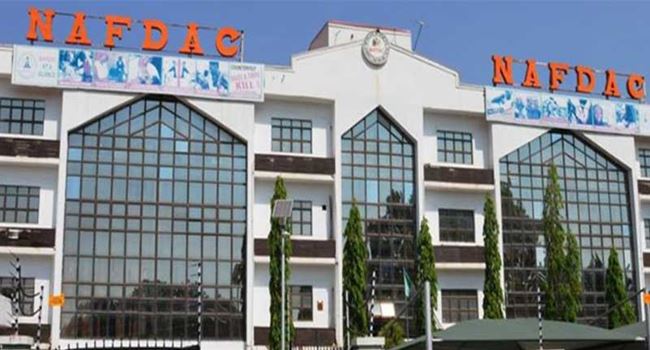News
Why ABUAD herbal Drug is not approved for COVID-19 treatment —NAFDAC

The Director-General of the National Agency for Food and Drug Administration and Control (NAFDAC), Professor Mojisola Adeyey has given reasons why the agency was yet to approve Virucidine Liquid, produced by Afe-Bablola University, for the treatment of COVID-19, despite a claim that it had cured some patients.
Professor Afe Babalola, the founder of the university, had claimed earlier this year that the herbal drug had cured 19 patients.
Prof. Babalola made the claim while speaking at a ceremony commemorating the 12th anniversary of the university in Ado-Ekiti.
Boasting of the efficacy of the drug, he said “I can confirm to you that our herbal drug produced through extensive research by our team of researchers has healed about 19 patients who contracted covid-19 pandemic. They were healed perfectly less than five days of usage, that tells you the level of our research in ABUAD”, he said
Meanwhile, Prof. Adeyeye who spoke on ARISE TV Morning Show, maintained that the regulatory body was yet to approve the drug for the treatment of COVID-19.
She argued that the testimonies recorded by Prof. Babalola are not enough for the legal luminary to make a claim of efficacy for the drug.
READ ALSO: COVID-19 remains a threat to health systems – WHO
She confirmed that the university was given a license in December, 2021 to start the production of the Virucidine Liquid as an immune booster, and not as a cure for COVID-19
“We got an application from ABUAD in May 2021. What NAFDAC does is to do a listing approval first. A listing approval is for the safety of the medicine, not efficacy. Meaning that if a patient takes the medicine, there will not be toxicity, to jeopardize the life of the patient. So, when we got the application in May last year, we sent what we call a compliance directive, meaning, what you should do and should not do.
“What we approved in December is that it is safe to use, then the efficacy stage comes later, but it depends on whether the applicant has money to do clinical trials. When you are doing drug development, there are actually five phases. You have the pre-clinicals where you use cells, animals; then you have three phases in the clinical trials. Phases one, two, and three. Then we have the post-marketing phase; which is what we have now for COVID-19 vaccines, Phase 4, that is post-marketing when it is already being used by so many people,” she explained.
She further explained that the herbal drug produced by the Afe Babalola University has not been subjected to clinical trials, hence cannot be proclaimed efficacious for the treatment of COVID-19.
“You can’t claim that this can cure something at this listing stage. It does not mean it may not be active against coronavirus. It is that you cannot claim until the next stage which is the efficacy stage.”
By Oluwatobi Odeyinka
Join the conversation
Support Ripples Nigeria, hold up solutions journalism
Balanced, fearless journalism driven by data comes at huge financial costs.
As a media platform, we hold leadership accountable and will not trade the right to press freedom and free speech for a piece of cake.
If you like what we do, and are ready to uphold solutions journalism, kindly donate to the Ripples Nigeria cause.
Your support would help to ensure that citizens and institutions continue to have free access to credible and reliable information for societal development.
























